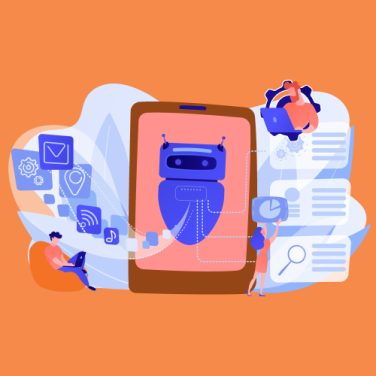With the rapid technological advancements in today’s business environments, adopting digital transformation for HR is no longer a luxury but a necessity.
A strategic move towards digital HR transformation not only enhances operational efficiency but also significantly improves employee experience. It also allows HR departments to focus on strategic initiatives rather than getting bogged down by administrative tasks, thus fostering a more engaged and productive workforce.
Distinguishing between HR digitalisation and digital HR transformation is crucial. While digitalisation refers to merely converting analogue processes into digital forms, transformation involves a foundational change in how HR operates, leveraging cutting-edge technologies for better outcomes.
Ultimately, digital transformation in HR lays the groundwork for more adaptable and responsive HR strategies, aligning HR practices with business goals to cultivate a dynamic and supportive work environment.
Enhancing employee experiences

Incorporating digital transformation in HR is essential for improving the employee experience.
By leveraging tools like AI-driven analytics and self-service platforms, HR departments can provide employees with more autonomy and quicker access to necessary information. This can lead to increased engagement and satisfaction as employees spend less time on administrative tasks and more on activities that contribute to personal and professional growth.
Platforms like MiHCM SmartAssist exemplify the potential of streamlining HR workloads, enabling HR professionals to focus on nurturing talent rather than getting bogged down in paperwork.
This not only enhances the overall efficiency within the HR department but also elevates the level of service provided to employees, promoting a more positive and supportive workplace environment.
Aligning HR with business growth
Diving deeper into the realm of business strategy, digital HR transformation plays a pivotal role in aligning HR functions with overarching business goals. By transforming traditional HR operations into data-driven processes, organisations can make more informed strategic decisions, significantly impacting growth and profitability.
Tools like MiHCM’s analytic dashboards provide critical insights into workforce demographics and performance, allowing companies to predict and plan more effectively.
As businesses adopt these innovations, they are better positioned to attract and retain top talent, thereby strengthening their employer brand.
Empowering innovation and competitiveness
Moreover, high-performing CHROs see the importance of investing in digital HR skills development, understanding that a digitally skilled workforce is crucial for innovation and competitiveness.
By aligning HR digital transformation strategies with business objectives, companies can harness the full potential of their human resources, ensuring that the workforce remains agile and responsive to the ever-evolving market demands.
In conclusion, digital transformation for HR is not just about adopting new technologies – it is a strategic shift towards creating a more efficient, engaged, and growth-aligned organisational structure. This shift is fundamental for businesses aiming to thrive in today’s fast-paced digital landscape.
Key benefits
Here are some of the pivotal benefits of digital transformation for HR:
- Increased efficiency and productivity: Transforming traditional manual HR tasks with digital tools leads to enhanced efficiency. HR digitalisation automates repetitive functions, freeing up HR professionals to devote their time to strategic initiatives. This shift is key for accelerating project timelines and enhancing the overall productivity of the HR department.
- Enhanced decision-making through analytics and data: Human resources digital transformation leverages advanced analytics and data-driven insights, empowering organisations to make informed decisions. HR analytics provide a panoramic view of workforce demographics, performance trends, and staffing needs, facilitating strategic decision-making and allowing businesses to adapt swiftly to change.
- Streamlined processes and operations: Digital HR transformation simplifies complex HR workstreams, from recruitment to employee onboarding, and performance management. With streamlined processes, HR departments can mitigate errors and improve the speed of execution, ensuring smoother operations across the board.
- Improved employee experience and engagement: Digital HR tools offer a personalised and seamless experience for employees, improving engagement and satisfaction. By implementing self-service platforms, organisations empower employees with transparency and control over their HR interactions, enhancing the overall employee experience.
- Comprehensive talent acquisition and management: Deploying digital solutions in talent acquisition and management helps organisations attract and retain top talent. Digital transformation creates a more dynamic recruitment process, while analytics allow for more precise tracking of employee performance and development.
These benefits collectively demonstrate how embracing digital HR transformation is not merely an option but essential for businesses aiming for sustained success and growth in today’s competitive landscape.
By integrating cutting-edge HR technologies and practices, organisations can foster a workforce that is not only more effective but also more aligned with their strategic objectives.
Overcoming resistance to change
Implementing digital transformation in HR often encounters resistance within organisations, as employees may be hesitant to adapt to new systems and processes. This hesitance can stem from a fear of the unknown or a lack of understanding of the benefits that digital tools bring.
To mitigate this resistance, it is crucial to prioritise change management strategies that involve clear communication and training initiatives. HR leaders should strive to create an environment where continuous learning is encouraged, fostering digital awareness and skill development across all levels.
By engaging employees in the journey of transformation, organisations can ease the transition and promote a culture of innovation, ultimately leading to a more receptive workforce.
Ensuring adequate budget and resources
Resource allocation and budget constraints are significant hurdles in executing a successful digital HR transformation.
While the initial costs of acquiring and implementing advanced technologies can be substantial, it is essential to view these investments as foundational for long-term productivity and growth. HR leaders must make a compelling business case for these investments, aligning them with strategic goals to gain the necessary support from stakeholders.
Furthermore, exploring phased implementation options can help manage costs, allowing for incremental improvements without overwhelming the organisation financially. Prioritising solutions that offer scalability and adaptability ensures that the HR digital transformation remains sustainable as business needs evolve.
Additional technological barriers, such as outdated HRIS systems, can also impede progress. Updating these systems to more integrated and automated solutions is critical for enhancing data accuracy and enabling more efficient HR operations.
By leveraging tools like those offered by MiHCM, organisations can modernise their HR infrastructure, achieving efficiencies that unlock workforce productivity.
Creating a transformation roadmap
Embarking on a digital transformation journey for HR requires a well-structured roadmap. A transformation roadmap serves as a strategic guide to align HR processes with digital capabilities, ultimately enhancing efficiency and effectiveness.
Start by assessing current HR processes to identify areas ripe for digital enhancement. With a comprehensive evaluation, you can then define clear objectives aligned with broader business goals, ensuring that digital initiatives support organisational growth and employee satisfaction.
Developing a roadmap involves outlining key milestones, setting timelines, and allocating resources effectively. Prioritise initiatives that promise the greatest impact, such as integrating HR analytics for informed decision-making.
Engaging stakeholders across the organisation is crucial to secure buy-in and foster a collaborative atmosphere, which is essential for overcoming resistance to change.
Regular reviews and updates to the roadmap ensure that the transformation remains aligned with evolving business needs and technological advancements.
Developing digital HR skills
As HR functions increasingly lean on technology, enhancing digital literacy becomes imperative. Investing in skills development enables HR professionals to navigate new platforms and technologies effectively, enhancing their ability to support and lead transformation initiatives.
Conducting training sessions and workshops can build the necessary competencies, focusing on areas such as data analytics, AI tool utilisation, and change management.
Moreover, high-performing organisations often leverage digital adoption platforms to facilitate skill development, enhancing the team’s ability to integrate and adapt to new tools seamlessly. Empowering your team with the right skills positions them to optimise HR operations and drive transformation success.
Utilising advanced HR technology, such as the solutions provided by MiHCM, can significantly transform HR functions. With tools that offer AI integration and comprehensive analytics, HR departments can streamline operations, enhance decision-making, and improve employee engagement.
By leveraging these technologies, HR teams can ensure a smoother transition towards a digitally adept and responsive human resources strategy.
Real-world case studies
Digital HR transformation is being adopted by organisations across the globe as a strategy to revolutionise human resources functions. Let’s explore some real-world case studies that exemplify how companies have excelled through effective digital HR transformation:
Atos: This IT services company successfully integrated a cloud solution with its Human Resource Information System (HRIS) to automate offer letters. By doing so, Atos streamlined HR service delivery across 70 countries, significantly reducing administrative workload and enhancing the speed and accuracy of their onboarding process. This transformation not only enhanced operational efficiency but also improved the overall employee experience by providing automated, precise, and timely communication.
Unilever: Known for its commitment to innovation, Unilever embarked on a digital HR transformation to unify its global HR operations. By adopting a state-of-the-art Human Capital Management (HCM) system, Unilever centralised its HR processes, leading to improved data accuracy and a comprehensive view of employee information. This holistic approach allowed for better decision-making and agility in managing talent across different geographies.
BDO: The global network of public accounting, tax consulting, and business advisory firms, BDO, revolutionised its recruitment process through digital HR transformation. By leveraging AI-driven analytics, the company enhanced its talent acquisition capabilities. The use of predictive analytics enabled BDO to identify key talent trends and adjust their recruitment strategies accordingly, ensuring they attracted the best talent in the market.
McDonald’s: The fast-food giant improved its employee engagement and performance management through digital tools. By implementing digital platforms that allow for real-time feedback and streamlined communication, McDonald’s fostered a culture of transparency and responsiveness. This digital initiative boosted employee satisfaction and retention, while also facilitating continuous improvement in service delivery.
By moving beyond conventional HR practices and embracing digital innovations, businesses can turn HR into a strategic driver of growth and success. To learn more about how digital HR tools can enhance efficiency, explore HR digital transformation tools enhancing HR efficiency.
More than just a trend
Digital transformation in HR is more than just a compelling trend; it’s a strategic shift that can redefine how organisations operate and thrive. By leveraging digital HR transformation, companies can unlock unprecedented levels of efficiency, streamlined operations, and enhanced employee experiences.
The journey to digitalisation in HR is one that requires careful planning and execution, yet the rewards are substantial. With a comprehensive roadmap in hand, HR leaders can align their processes with digital tools to foster a more agile and adaptive workforce.
Moreover, companies that embrace digital HR transformation can expect improved decision-making capabilities. Through data analytics and AI integration, organisations can gain valuable insights into workforce dynamics, enabling them to make informed strategic decisions.
This shift towards a data-driven approach supports not only operational efficiencies but also empowers HR departments to play a pivotal role in achieving overarching business objectives.
To remain competitive in this rapidly evolving landscape, HR professionals are encouraged to pursue continuous skill development. Investing in digital skills and advanced HR technologies will not only enhance departmental capabilities but also prepare teams to lead transformation initiatives effectively.
As organisations embark on this journey, embracing tools like those offered by MiHCM can provide a significant edge, offering solutions that empower HR functions through analytics and AI-driven insights.
The time to act is now; start planning your HR digital transformation strategy to secure a prosperous future.



